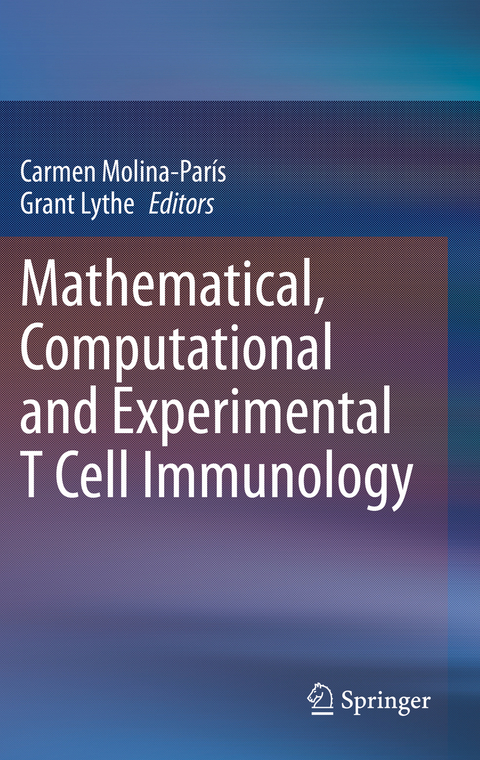
Mathematical, Computational and Experimental T Cell Immunology
Springer International Publishing (Verlag)
978-3-030-57206-8 (ISBN)
Mathematical, statistical, and computational methods enable multi-disciplinary approaches that catalyse discovery. Together with experimental methods, they identify key hypotheses, define measurable observables and reconcile disparate results. This volume collects a representative sample of studies in T cell immunology that illustrate the benefits of modelling-experimental collaborations and which have proven valuable or even ground-breaking. Studies include thymic selection, T cell repertoire diversity, T cell homeostasis in health and disease, T cell-mediated immune responses, T cell memory, T cell signalling and analysis of flow cytometry data sets. Contributing authors are leading scientists in the area of experimental, computational, and mathematical immunology. Each chapter includes state-of-the-art and pedagogical content, making this book accessible to readers with limited experience in T cell immunology and/or mathematical and computational modelling.
lt;p>Grant Lythe and Carmen Molina-París are Professors of Applied Mathematics at the University of Leeds. They have coordinated the FP7 Initial Training Network on Quantitative T cell Immunology (2013-2017) and they currently coordinate the H2020 Innovative Training Network on Quantitative T cell Immunology and Immunotherapy (2018-2022).
Cytokine receptor signaling and CD4/CD8 lineage choice during T cell development in the thymus.- An agent-based model of T helper cell fate decisions in the thymus.- Modelling naive T cell homeostasis.- Mechanistic models of CD4 T cell homeostasis and reconstitution in health and disease.- Section 1MODELING THE DYNAMICS OF CD4+ T CELLS IN HIV- 1 INFECTION.- Modelling the response to Interleukin-7 therapy in HIV-infected patients.- Modeling immunopathology during persistent viral infections.- Delay in differentiation may suggest division of labour in models for CD8+ T cell differentiation.- Inferring differentiation order in adaptive immune responses from population level data.- Experimental and mathematical approaches to quantify recirculation kinetics of lymphocytes.- The public face and private lives of T cell receptor repertoires.- Population dynamics of immune repertoires.- Mathematical Modelling of T cell activation.- Agent-based model of heterogeneous T cell activation in vitro.- CTLA-4 mediated ligand trans-endocytosis: a stochastic model.- Automated gating and dimension reduction of high-dimensional cytometry data.- Index.
| Erscheinungsdatum | 07.01.2022 |
|---|---|
| Zusatzinfo | X, 298 p. 74 illus., 59 illus. in color. |
| Verlagsort | Cham |
| Sprache | englisch |
| Maße | 155 x 235 mm |
| Gewicht | 474 g |
| Themenwelt | Informatik ► Weitere Themen ► Bioinformatik |
| Studium ► Querschnittsbereiche ► Infektiologie / Immunologie | |
| Naturwissenschaften ► Biologie ► Genetik / Molekularbiologie | |
| Schlagworte | Cell Biology • Data-driven modeling • Immune • Modeling • thymic selection • Thymus |
| ISBN-10 | 3-030-57206-4 / 3030572064 |
| ISBN-13 | 978-3-030-57206-8 / 9783030572068 |
| Zustand | Neuware |
| Informationen gemäß Produktsicherheitsverordnung (GPSR) | |
| Haben Sie eine Frage zum Produkt? |
aus dem Bereich


